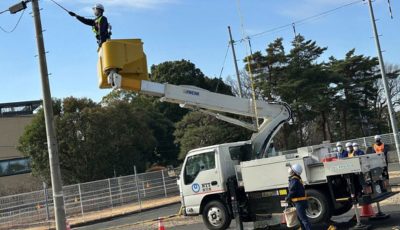Guam’s DPHSS warns community about COVID-19 scams
In light of the urgency of obtaining the COVID-19 vaccine, Guam’s Department of Public Health and Social Services is warning the community of scams that are related to the COVID-19 vaccine and Medicare.
According to a DPHSS statement yesterday, Medicare beneficiaries who want to get the COVID-19 vaccine won’t have to pay for the vaccine. DPHSS also strongly warns that if anyone asks beneficiaries to share their Medicare number, or pay for access to the vaccine, it is a scam.
DPHSS warned the community not to share personal or financial information if someone calls, texts, or emails you promising access to the vaccine for a fee.
DPHSS confirmed that one cannot pay to put one’s name on a list to get the vaccine and can’t pay to get early access to a vaccine.
“Be suspicious of anyone going door-to-door to offer free coronavirus or COVID-19 testing, supplies, treatments, or vaccines. Ask for ID and make sure the individual(s) are employed by DPHSS first,” said DPHSS in a statement.
Also, DPHSS says to beware of providers offering other products, treatments, or medicines to prevent the virus. “Check with your health care provider before paying for or receiving any COVID-19-related treatment,” said DPHSS.
In addition, community members should always review their Medicare Summary Notice or Explanation of Benefits to look for errors or claims for products or services that weren’t received. DPHSS stated that the information that was provided to them is available at medicare.gov.
According to various media outlets, scammers and other threat actors have launched over the past few weeks their own programs to steal personal information, conduct identity theft, scam victims, and all with the potential for criminal financial gain—all in the name of the COVID-19 vaccine.
The International Criminal Police Organization, commonly known as INTERPOL, released a statement in December 2020, warning of potential criminal activity in relation to the falsification, theft, and illegal advertising of COVID-19 and flu vaccines. This included examples of crimes where individuals have been advertising, selling, and administering fake vaccines.
“Criminal networks will also be targeting unsuspecting members of the public via fake websites and false cures, which could pose a significant risk to their health, even their lives,” said Jürgen Stock, Interpol secretary-general.
So far, there has been no report yet of an instance related to a COVID-19 scam in the CNMI.



























